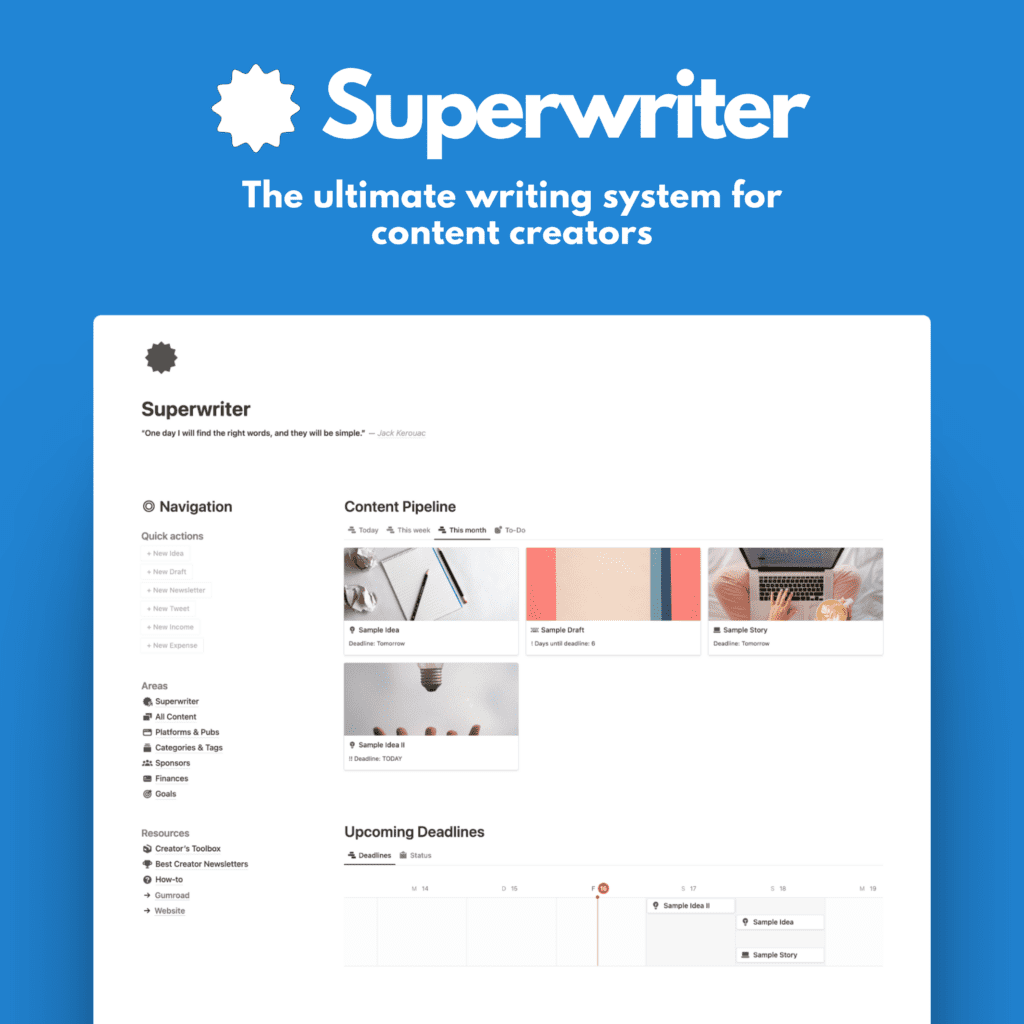SEO will make or break your blog.
No matter how great of a writer you are, SEO is what drives readers to your amazing content. This is true for personal and professional blogs, but also for community-driven sites like Medium or Vocal.
You want your stories to be read, don’t you?
Here are 5 crucial SEO mistakes writers make and how to fix them.
1. User-friendliness and content quality
In recent years, Google has ensured that bad content, written just to trick search engines, is being removed from the search index. This trend will continue. Therefore, search engine optimization and user experience should always be your focus.
Write like you want to read. Don’t blabber around, cut straight to the point. Structure your article in a natural and easy-to-follow manner with fitting subheaders, text styles, and bullet points.
General key takeaway: What’s good for the user is good for search engines!
SEO can be reduced to this simple denominator. Act accordingly!
2. Internal links
Few site owners know that their internal linking structure sends important signals to Google and users about the relevance of certain topics and pages. Accordingly, you should carefully plan your link structure and ensure that these links to the most important landing pages are included in numerous articles.
Key takeaway: Always have a set of related posts or links in your head to use in your next article.
3. High competition
Many bloggers make the crucial mistake of only using “short head” search terms, i.e. the most obvious and short, often one-worded search terms for their topic.
These are pretty much impossible to rank!
First of all, there is a lot of competition out there, and central terms like “meditation” or “yoga” have been used for ages by the high-ranking sites.
Secondly, short head keywords are often far too general and won’t help the user much as they’re not based on any action, how-to, or wh questions. Those are the most frequently used search phrases
Instead, “long tail keywords” should be your focus. These are usually phrases with a handful of words that have a medium to high search volume, but low to medium competition ratings, i.e., users look for them, but the results are still up for grabs.
Key takeaway: Do your keyword research and opt for long tail keywords instead of general, short head terms.
4. Page loading time
Long loading times have a negative impact. Every millisecond counts.
Unfortunately, many popular blogging platforms, free and even paid ones, struggle with this specific issue, be it WordPress, Squarespace, Medium, or Blogger. Websites take ages to load. This drives away users very quickly.
Images, stylesheets and JavaScript files can be large and should therefore be optimized as much as possible so that the pages can be loaded without problems, even with a slow internet connection.
Additionally, the structure of large CMS platforms like WordPress is bulky. They offer many options, but that can slow done a site significantly. A caching plugin is one easy solution to the problem.
Key takeaway: Don’t overuse large elements like images, keep your files in check (if you have access to them), and make use of caching plugins or content delivery networks like Cloudflare to speed up your site.
5. Outdated content & dead links
An old page is not a bad thing per se. On the contrary, age is a factor for rankings. However, an old blog entry that includes outdated content and, even worse, dead links is brutal for search rankings. Dead links are the ones that link to inactive or deleted content. These links return 404 errors. A bad sign for Google.
Therefore, you should regularly check your old content for dead links and keep crucial sections of your posts up-to-date. Google rewards updated content.
Key takeaway: Spend some time updating and improving your archive. Remove dead links.
The bottom line
What’s the biggest mistake when it comes to SEO? I’ll tell you:
Not implementing SEO is the biggest mistake. Or thinking that SEO is not important.
It might be less important on a site like Medium with its community-driven algorithm, but external traffic from search engines optimization still plays a large role, for example for referrals.
With that out of the way, keep these 5 SEO beginner mistakes and fixes in mind when you write your next post, create a new website, or set up your next blog.
- User-friendliness and content quality
- Internal links
- Competition and long tail keywords
- Page loading time
- Outdated content & dead links
SEO is the most important discipline in online writing & marketing. If you don’t take advantage of this huge potential, you’ll have a problem sooner or later.








